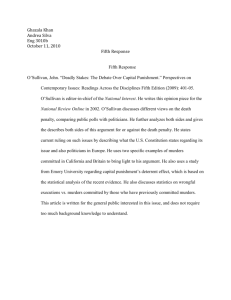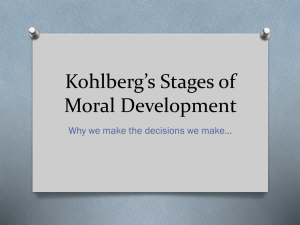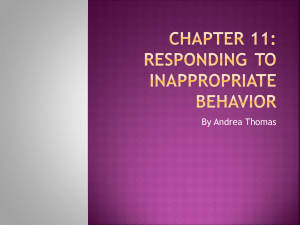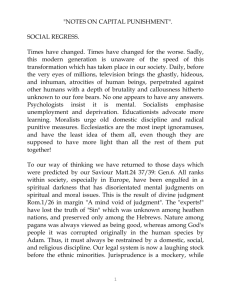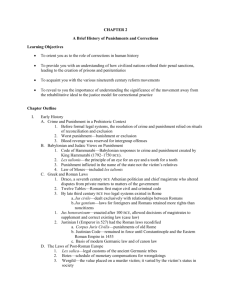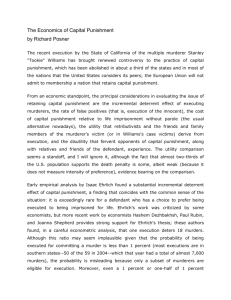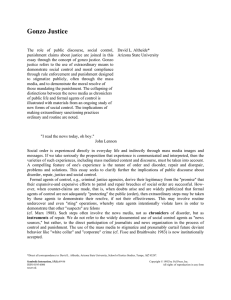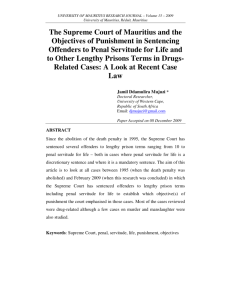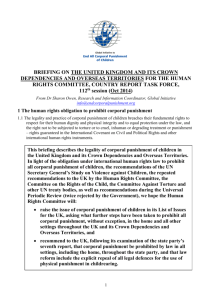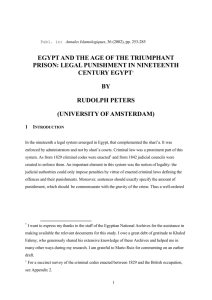Key events cards
advertisement
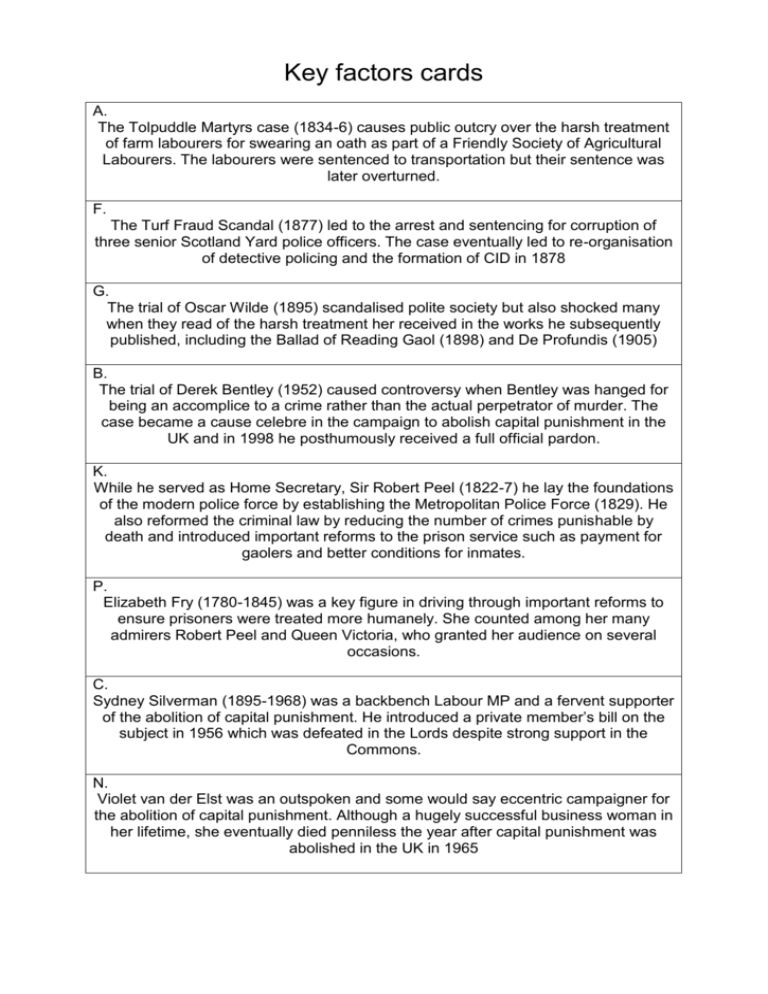
Key factors cards A. The Tolpuddle Martyrs case (1834-6) causes public outcry over the harsh treatment of farm labourers for swearing an oath as part of a Friendly Society of Agricultural Labourers. The labourers were sentenced to transportation but their sentence was later overturned. F. The Turf Fraud Scandal (1877) led to the arrest and sentencing for corruption of three senior Scotland Yard police officers. The case eventually led to re-organisation of detective policing and the formation of CID in 1878 G. The trial of Oscar Wilde (1895) scandalised polite society but also shocked many when they read of the harsh treatment her received in the works he subsequently published, including the Ballad of Reading Gaol (1898) and De Profundis (1905) B. The trial of Derek Bentley (1952) caused controversy when Bentley was hanged for being an accomplice to a crime rather than the actual perpetrator of murder. The case became a cause celebre in the campaign to abolish capital punishment in the UK and in 1998 he posthumously received a full official pardon. K. While he served as Home Secretary, Sir Robert Peel (1822-7) he lay the foundations of the modern police force by establishing the Metropolitan Police Force (1829). He also reformed the criminal law by reducing the number of crimes punishable by death and introduced important reforms to the prison service such as payment for gaolers and better conditions for inmates. P. Elizabeth Fry (1780-1845) was a key figure in driving through important reforms to ensure prisoners were treated more humanely. She counted among her many admirers Robert Peel and Queen Victoria, who granted her audience on several occasions. C. Sydney Silverman (1895-1968) was a backbench Labour MP and a fervent supporter of the abolition of capital punishment. He introduced a private member’s bill on the subject in 1956 which was defeated in the Lords despite strong support in the Commons. N. Violet van der Elst was an outspoken and some would say eccentric campaigner for the abolition of capital punishment. Although a hugely successful business woman in her lifetime, she eventually died penniless the year after capital punishment was abolished in the UK in 1965 J. Albert Pierrepoint was the twentieth century’s most famous public executioner. He spoke publicly on many TV documentaries about his experiences, notably the hanging of Nazi war criminals after the Nuremberg Trials and the execution of Ruth Ellis, the last woman to be hanged in the UK. In his biography, Pierrepoint openly expressed the view that capital punishment was not an effective deterrent, fuelling the campaign for its abolition. M. Charles Dickens attended the public execution of Marie Manning, a Swiss servant convicted of killing her lover. Dickens described the event as ‘inconceivably awful’ and wrote of the ‘wickedness and levity’ of the crowds. His words were published in The Times newspaper (14th November 1849) and read widely. O. The Whitechapel Murders excited the interest of authors and journalists. Newspaper sales soared after each grisly discovery. An adaptation of Dr Jekyll and Mr Hyde running on the West End at the time of the murders was thought to have inspired the murderer. Depictions of the murders in the Penny Illustrated Paper and other broadsheets often showed the murderer wearing a top hat and carrying a cane and doctor’s bag – just like Jack the Ripper. I. The wave of garrotting which swept the street of London in the autumn of 1862 was closely documented by leading newspapers and journals such as the Cornhill Magazine. D. In 1842 Pentonville Prison was opened to great public fanfare. With its 520 cells modelled on Jeremy Bentham’s Panopticon design it was inspired by the debate over the virtues of the separate over the silent system of punishment. Solitary confinement remained as a punishment until 1922. L. The Penal Servitude Act of 1853 introduced penal servitude to those sentenced to less than 14 years of transportation. When transportation ceased in 1867, penal servitude became the only form of long-term punishment H. In the early 1900s a series of liberal reforms were introduced. Probation was introduced in 1907. The Children Act of 1908 abolished the imprisonment of children under fourteen years of age, whilst the Prevention of Crime Act also that year extended borstal for youths aged 16 to 21 across the country. In the 1930s the authorities even considered closing women’s prisons all together, but this didn’t occur. E. The Police Act (1964) gave the Home Secretary new powers to supervise local constabularies and amalgamate forces where he deemed it was necessary




